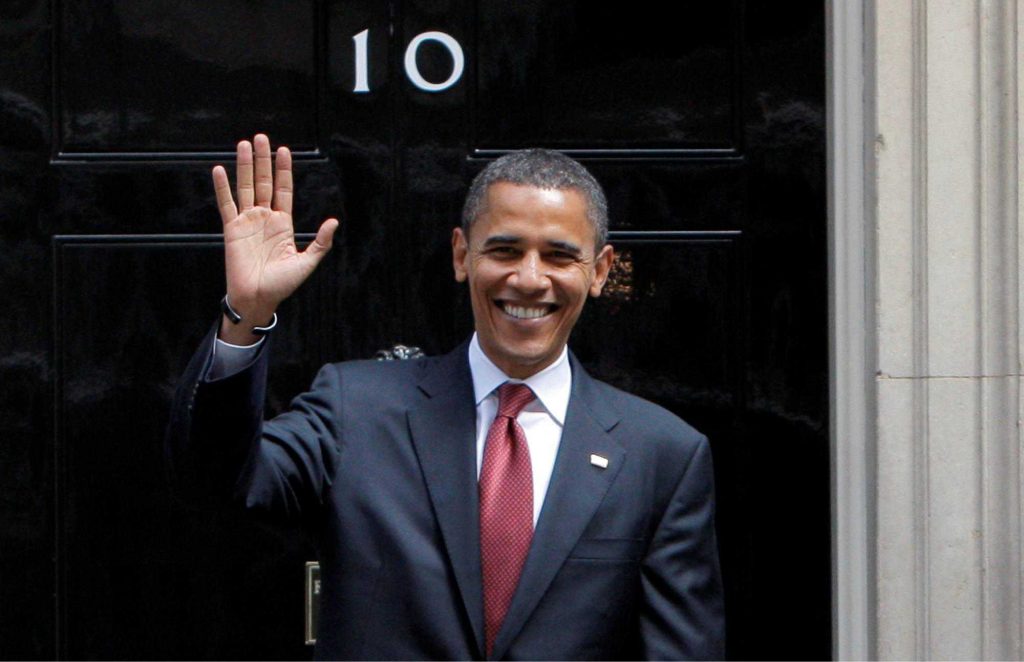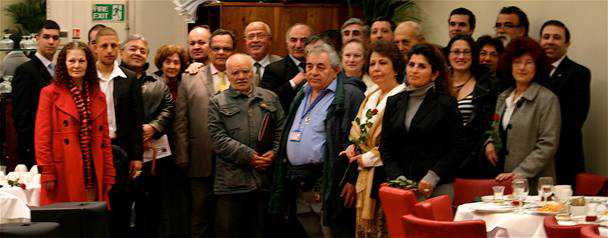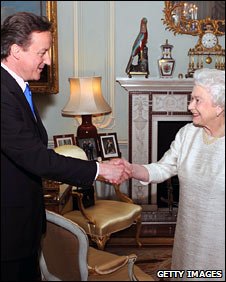Gordon Brown ‘stepping down as Labour leader’
Gordon Brown is to step down as Labour leader by September – as his party opens formal talks with the Lib Dems about forming a government.
His announcement came as he and the Conservatives woo the Lib Dems in a battle to form the next government.
Mr Brown’s presence was seen as harming Labour’s chances of Lib Dem backing.
Following the news the Conservatives made a ‘final offer’ to the Lib Dems of a referendum on changing the voting method to the Alternative Vote system.
Further clarification
BBC political editor Nick Robinson said Mr Brown’s resignation was an audacious bid by Mr Brown to keep Labour in power – and himself in power for a limited period – and Tory MPs would be furious.
It comes after further talks between the Tory and Lib Dem negotiating teams and another meeting between Tory leader David Cameron and Lib Dem leader Nick Clegg.
In his statement, Mr Brown said Britain had a “parliamentary and not presidential system” and said there was a “progressive majority” of voters.
He said if the national interest could be best served by a coalition between the Lib Dems and Labour he would “discharge that duty to form that government”.
But he added that no party had won an overall majority in the UK general election and, as Labour leader, he had to accept that as a judgement on him.
Leadership process
“I therefore intend to ask the Labour Party to set in train the processes needed for its own leadership election.
“I would hope that it would be completed in time for the new leader to be in post by the time of the Labour Party conference.
“I will play no part in that contest, I will back no individual candidate.”
Lib Dem leader Mr Clegg had requested formal negotiations with Labour and it was “sensible and in the national interest” to respond positively to the request, Mr Brown said.
It emerged earlier that the Lib Dem negotiating team, who have held days of talks with the Conservatives, had also met senior Labour figures in private.
But it was understood that one of the stumbling blocks to any Labour-Lib Dem deal was Mr Brown himself.
Mr Clegg said he was “very grateful to David Cameron and his negotiation team” and they had had “very constructive talks” and made a “great deal of progress”.
‘Smooth transition’
But he said they had not “reached a comprehensive partnership agreement for a full Parliament” so far and it was the “responsible thing to do” to open negotiations with the Labour Party on the same basis, while continuing talks with the Tories.
“Gordon Brown has taken a difficult personal decision in the national interest,” he said.
“And I think without prejudice to the talks that will now happen between Labour and the Liberal Democrats, Gordon Brown’s decision is an important element which could help ensure a smooth transition to the stable government that everyone deserves.”
The Lib Dems have long campaigned for a change to the voting system – something which the Conservatives have strongly opposed.
But speaking after a meeting of Conservative MPs, following Mr Brown’s statement, shadow foreign secretary William Hague said they were prepared to “go the extra mile” on electoral reform – and offer a referendum on switching to AV in return for a coalition government.
He said the Lib Dems had to choose whether to back them or a government that would not be stable – because it would have to rely on the votes of other minor parties – and would have an “unelected prime minister” for the second time in a row.
Labour scepticism
He also said the Labour offer was for a switch to the AV system, without a referendum, which he believed was undemocratic. The BBC understands, from Lib Dem sources, that the Labour offer is legislation to introduce AV, followed by a referendum on proportional representation.
Under AV no candidate is elected without at least 50% of the vote, after second preferences are taken into account, but it is not considered full proportional representation.
Meanwhile BBC political correspondent Iain Watson said he understood some Cabinet members were sceptical about the idea of a “progressive alliance” with the Lib Dems and were concerned it would look bad.
And he said Mr Brown would be asking Cabinet ministers not to launch immediate leadership campaigns, for fear it would look undignified.
John Mann, the first Labour MP to call for him to go after the election result, said Mr Brown had made a “wise and brave” decision.
Cabinet minister Douglas Alexander told Sky News Mr Brown had decided to step down last week but was “very keen to ensure that he meets his constitutional obligations which is to ensure that a government is formed”.
And the SNP’s Westminster leader Angus Robertson said it was “inevitable” Mr Brown would have to go and he had “done the right thing”.
But Conservative MP Nigel Evans told the BBC: “The fact he’s going in September, I think the country passed its verdict. Gordon, they want you to go now.”
Labour backbencher Graham Stringer said he did not believe a coalition with the Lib Dems would work and could damage the party: “I don’t think it makes sense in the arithmetic – the numbers don’t add up.”
The Tories secured 306 of the 649 constituencies contested on 6 May. It leaves the party short of the 326 MPs needed for an outright majority, with the Thirsk and Malton seat – where the election was postponed after the death of a candidate – still to vote.
Labour finished with 258 MPs, down 91, the Lib Dems 57, down five, and other parties 28.
If Labour and the Lib Dems joined forces, they would still not have an overall majority.
With the support of the Northern Irish SDLP, one Alliance MP, and nationalists from Scotland and Wales they would reach 328, rising to 338 if the DUP, the independent unionist and the new Green MP joined them.
BBC




 Turkish and Turkish Cypriot NGOs to unite and form stronger lobby task force
Turkish and Turkish Cypriot NGOs to unite and form stronger lobby task force




